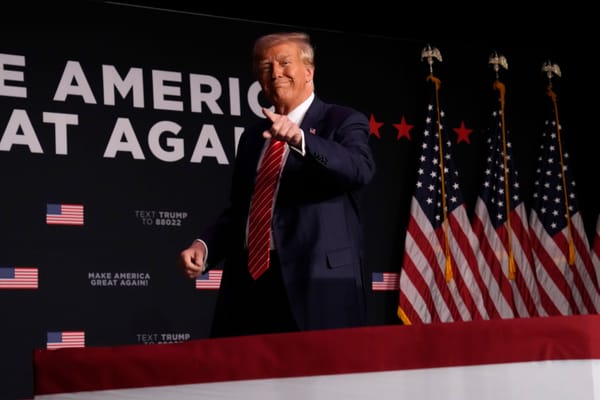Donald Trump has proposed a 10 percent “universal baseline tariff,” recently telling Larry Kudlow, “I think we should have a ring around the collar, as they say.” Though relatively modest compared to historical tariffs, Trump’s proposal should be praised for reviving the great American tradition of Hamiltonian political economy. The first secretary of the Treasury’s vision for American dynamism, yoking private interests to the public good through domestic investment and economic protection, became “the American System” that, adopted by the Republican Party, transformed the 13 colonies into a transcontinental superpower.
Today’s Republicans, for all their celebration of the Founding Fathers, have largely forgotten the economic program that did so much to advance US prosperity. On Dec. 5, 1791, Alexander Hamilton delivered his “Report on the Subject of Manufactures” to the House of Representatives. In it, he summarized, and shot down, free-trade precepts reminiscent of Adam Smith. Instead, Hamilton called for Americans to declare economic independence from Smith’s Britain, much as they had declared political independence a decade and a half earlier. The report was one more flashpoint in the Cabinet war between Hamilton and Thomas Jefferson, who was then secretary of state.
Jefferson wanted America to be a land of yeoman farmers, with a modest economy built on the export of agricultural products out of the excess of continental bounty. Hamilton believed that this would squander the new nation’s chance to assume a separate and equal station among the powers of the Earth, consigning the young republic to the pathetic role of resource pool and captive market for European manufactures. Better to use an energetic federal government to augment the productive powers of American labor with a diversity of manufactures and feed demand at home. Wrote Hamilton: “If Europe will not take from us the products of our soil, upon terms consistent with our interest, the natural remedy is to contract as fast as possible our wants of her.”
Hamilton won his fight with Jefferson, but many conservative intellectuals remain in thrall to Smith and, especially when it comes to international trade, his acolyte David Ricardo. Ricardo’s extension of the division of labor to the principle of comparative advantage has assumed the status of religious dogma for the advocates of free trade. If the jobs you were trained for are shipped off somewhere else, they tell American workers, somewhere else just had a comparative advantage. But Hamilton had an answer for this more than two centuries ago. “Not only the wealth; but the independence and security of a Country, appear to be materially connected with the prosperity of manufactures,” he wrote in his 1791 report. “Every nation, with a view to those great objects, ought to endeavor to possess within itself all the essentials of national supply.” This isn’t just a national-security case for reshoring personal protective equipment production; Hamilton’s whole argument is a reminder that a country can and should seek comparative advantage in industries conducive to its interests.
